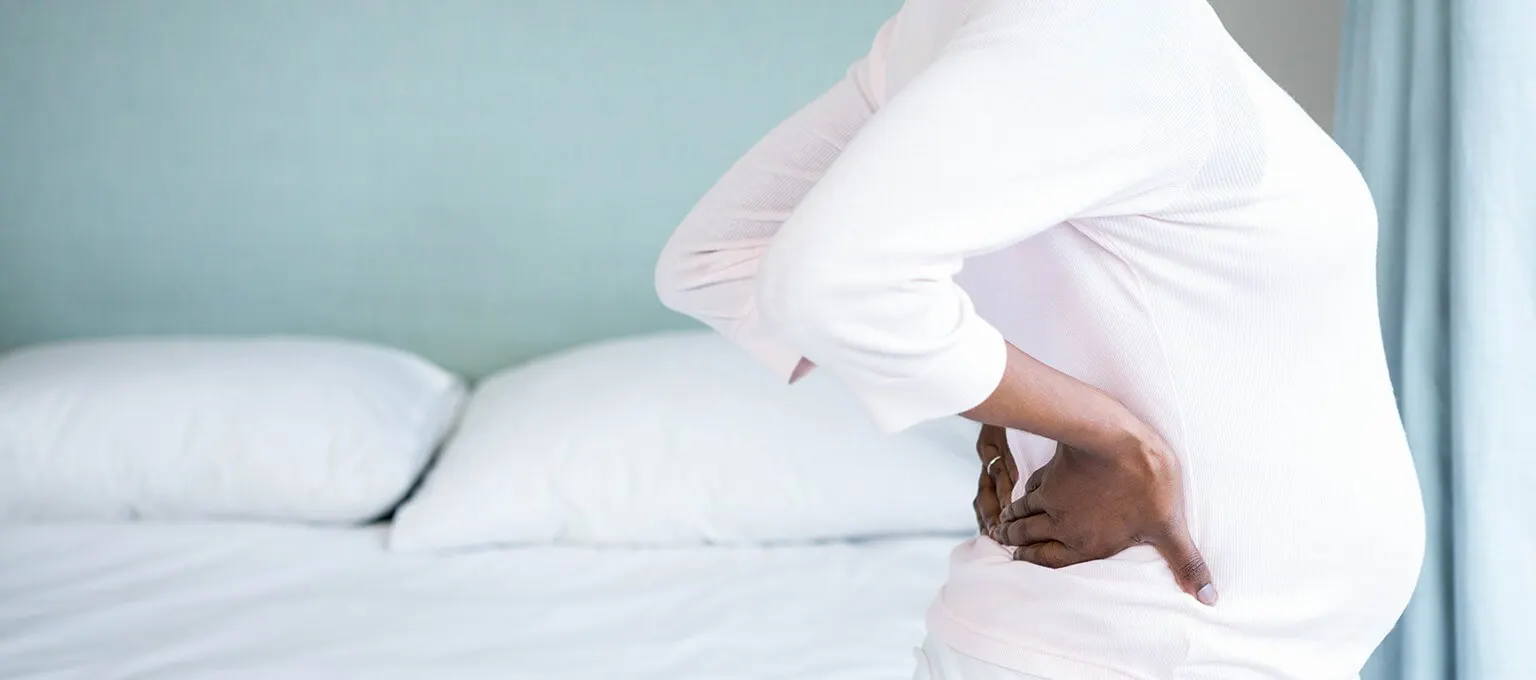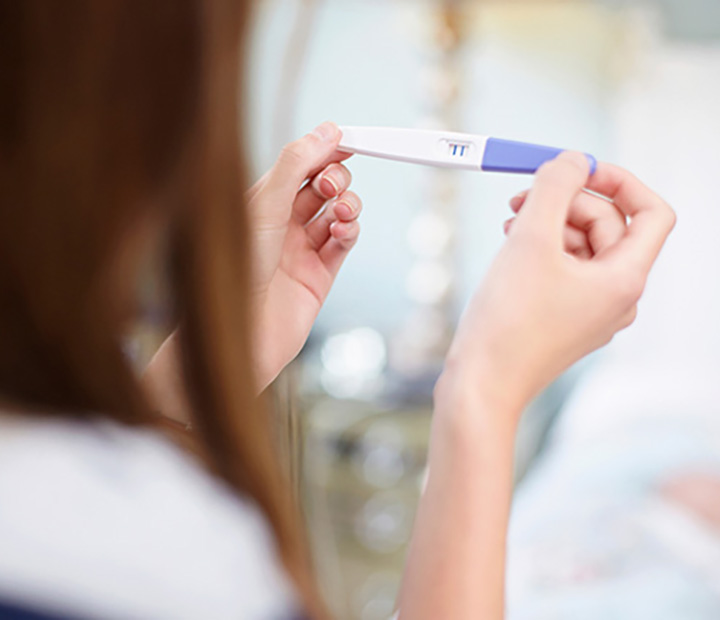Back Pain During Pregnancy: Causes, Symptoms, & Relief Tips
During pregnancy, lower back pain is a common discomfort many parents experience. While it can vary in intensity and timing, there are practical ways to manage or even prevent it, such as adjusting your sleeping position or incorporating gentle exercises into your routine. In this article, we’ll explore what causes back pain during pregnancy, how to relieve it, and when you should contact your healthcare provider for guidance.
What Causes Back Pain During Pregnancy?
As many as 80% of parents-to-be experience back pain during pregnancy, and understanding what causes it can help you manage it better. One major reason is the strain on your back muscles caused by pregnancy-related weight gain and changes in posture. As your belly grows, your center of gravity shifts forward, leading you to lean slightly backward to stay balanced. This adjustment can place extra pressure on your back, causing stiffness and soreness.
Weak abdominal muscles also contribute to the reason for back pain during pregnancy. These muscles stretch and weaken as your baby grows, reducing the support they provide to your spine. This imbalance may lead to discomfort or even persistent aches.
Additionally, pregnancy hormones play a significant role. Hormones like relaxin are designed to loosen the ligaments and joints in your pelvis to prepare for childbirth, but they may also impact the stability of your back joints, potentially causing overextension and soreness.
Understanding these factors may make it easier to address and minimize back pain throughout your pregnancy.
What Are the Symptoms of Back Pain During Pregnancy?
Back pain during pregnancy may present in various ways, and each parent-to-be might experience it differently. For some, it might feel like sharp jabs when making certain movements, such as stepping out of a car or climbing stairs. Others may notice back muscle spasms during pregnancy, which may occur after sitting or sleeping in certain positions.
The discomfort may range from a sudden, sharp pain to a constant dull pressure or a throbbing ache that comes and goes. Some might even experience a mix of these sensations, making it tricky to describe what pregnancy back pains feel like.
If you’re in early pregnancy, you may wonder about the location of back pain during this time. Often, discomfort can be felt in the lower back or pelvis, though it can sometimes be challenging to distinguish between back pain and hip or pelvic soreness. Staying attuned to your body's signals can help you identify patterns and triggers for your discomfort.
How to Relieve Back Pain During Pregnancy?
Relieving back pain during pregnancy often requires a combination of strategies. While your healthcare provider is your best resource for personalized advice, these tips may help you address discomfort and even prevent it from worsening:
Exercise regularly. Gentle physical activity could strengthen your back and leg muscles, improving posture and reducing strain. Try adding safe stretches or pregnancy exercises to your daily routine after consulting your healthcare provider.
Applying heat or cold. A heating pad on your back while pregnant may soothe sore muscles. Be sure to wrap it in a towel to protect your skin. Alternatively, ice packs can reduce swelling.
Practice good posture. Stand up straight and tall; keep your shoulders back and relaxed; don’t lock your knees. When you sit, choose a chair with good back support or use a cushion to support your lower back.
Wear comfortable shoes. Opt for comfortable, supportive shoes with low heels and good arch support. Avoid high heels, as they may shift your balance forward and worsen back pain.
Sleep on your side. Try recommended sleeping positions for hip pain, like lying on your side with a pillow between your legs or under your abdomen. A firm mattress may provide additional support.
Lift carefully. When picking something up, squat instead of bending at the waist, and keep your back straight to avoid strain.
Avoid standing for long periods of time, if you can.
Support your belly. A support band for your pregnant belly may ease the strain on your back and help stabilize your posture.
When Does Back Pain Start in Pregnancy?
Back pain during pregnancy may start at different times for each individual. If you’re wondering, if you get a sore back in early pregnancy, it’s less common but possible. Mild discomfort in the first trimester may occur, but back pain is not typically linked to early pregnancy and could be caused by something unrelated—consult your healthcare provider to be sure.
More often, back pain begins in the second or third trimester, as your growing baby puts pressure on your spine and muscles. Feeling backache in the third trimester of pregnancy is especially common due to increased weight and posture changes.
In some cases, sciatica may develop when the uterus presses on the sciatic nerve, causing pain that travels from your lower back down one leg. Warm showers, physical therapy, or safe pain-relief options recommended by your provider may help.
Toward the end of your pregnancy, a dull ache in your back and lower abdomen, together with pressure in your pelvis, might be a sign you are going into labor.
When to Contact Your Healthcare Provider
While aches and pains in pregnancy are often normal, certain types of back pain may signal a more serious concern. Understanding when to worry about back pain in pregnancy may help ensure you and your baby stay safe. Severe or unusual back pain may sometimes indicate symptoms of preterm labor or conditions such as a urinary tract infection (UTI).
Contact your healthcare provider if you experience:
Extreme backache in early pregnancy
Severe back cramps in early pregnancy
Persistent back pain lasting more than two weeks
Numbness in your feet or weakness in your legs
Severe calf pain
Vaginal bleeding, which may also indicate preterm labor
Fever
A burning sensation when you urinate.
If you’re curious about other pregnancy symptoms, check out the Early Signs of Pregnancy Quiz to learn more.
The Bottom Line
Pregnancy comes with its share of aches and pains, but try to stay focused on the incredible moment ahead—holding your baby in your arms! Use the tips in this article to find relief, and consult your healthcare provider for personalized advice.
For additional support, consider downloading the Pampers Club app. It offers discounts and digital rewards to make your journey even smoother. With the right care and a little luck, you’ll soon be feeling more comfortable.
Join a World of Support
through Pregnancy and Parenthood.
TRACK WITH TOOLS
LEARN WITH EXPERTS
GET REWARDED













